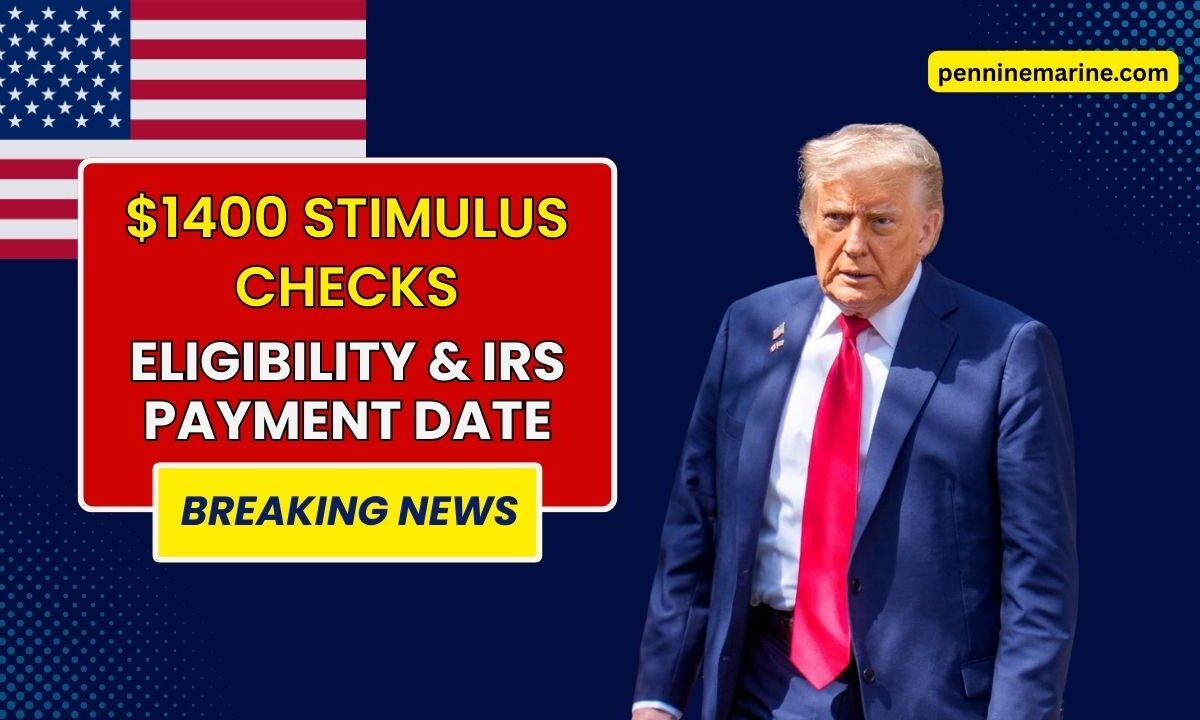As 2025 progresses, many Americans are curious about the possibility of new $1,400 stimulus checks. While related chatter has arisen, no new federal stimulus program has been approved for this summer—making such claims unlikely or unofficial.
That said, the IRS has begun issuing automatic payments of up to $1,400 tied to the 2021 Recovery Rebate Credit, delivering retroactive relief to those who missed it.
Here’s a full breakdown of who is receiving this relief, what payment amounts look like, and how the IRS is distributing them:
Payment Overview
| Category | Details |
|---|---|
| Stimulus Type | Retroactive Recovery Rebate Credit from 2021 stimulus programs |
| Maximum Amount per Person | $1,400 |
| Dependency Benefit | Additional $1,400 per qualifying dependent |
| Target Group | Taxpayers who didn’t claim stimulus credits on their 2021 return |
| Estimated Total Payout | Roughly $2.4 billion in automatic distributions |
| Distribution Period | Completed by late January 2025 for qualifying recipients |
Who Qualifies?
- Individuals who were eligible for previous stimulus payments but either forgot to claim the Recovery Rebate Credit on their 2021 return, or claimed part of it.
- The IRS has begun sending automatic payments—no amended filing required for most.
- Individuals and dependents each qualify for up to $1,400, meaning families may receive several payments cumulatively.
Why Payments Are Being Issued
This round of payments reflects the government’s effort to ensure fairness and complete delivery of the relief originally intended:
- Many individuals missed out on stimulus funds due to filing errors or changing circumstances.
- Automatic issuance allows the IRS to close the gap without creating heavy administrative burdens for taxpayers.
- The deadline to still claim these credits via filing was April 15, 2025; after that, the window officially closed.
Distribution Schedule & Delivery Methods
- Scheduled Auto-Disbursement: Payments began shipping late December 2024, with most arriving by January 2025.
- Payment Method: Matches your 2023 refund method—direct deposit when available, or paper check mailed to the address on file.
- Notification: Recipients will receive letters informing them of payment details.
What This Means (and What It Doesn’t)
- It is not a new stimulus program; no fresh payments have been authorized in 2025.
- There is no legislative approval for additional stimulus checks beyond this settlement.
- Any reports of new $1,400 checks being issued starting in August 2025 are unsubstantiated rumors and not confirmed by the IRS.
How to Protect Yourself & What to Do Next
- Watch for IRS notifications via mail or your online account.
- Validate legitimacy before sharing sensitive info—IRS does not initiate unsolicited contacts.
- Check your eligibility still by referencing 2021 tax filing status if uncertain.
- Plan smart: Use these funds to pay off debt, stock up on essentials, or boost savings.
There’s no new federal stimulus planned for August 2025. The $1,400 payments you may receive now reflect unclaimed 2021 Recovery Rebate Credits.
These payments—capped at $1,400 for individuals and issued automatically—are intended to finalize a chapter of relief efforts from the pandemic era.
While not new money, this program ensures that those who missed prior stimulus can now access their entitled share. Stay informed through official IRS channels to confirm your payment status.
FAQs
Are new $1,400 stimulus checks being issued in 2025?
No—these payments are retroactive, related to the 2021 Recovery Rebate Credit, and not part of a new stimulus initiative.
Do I need to apply or file anything to receive this payment?
No. If you’re eligible and didn’t claim the 2021 credit, the IRS will issue payment automatically—no additional filing required.
How will I receive the payment?
The IRS will deliver it via direct deposit if settings are up-to-date, or by paper check, mirroring your previous refund method. You’ll also get a letter confirming the payment.

